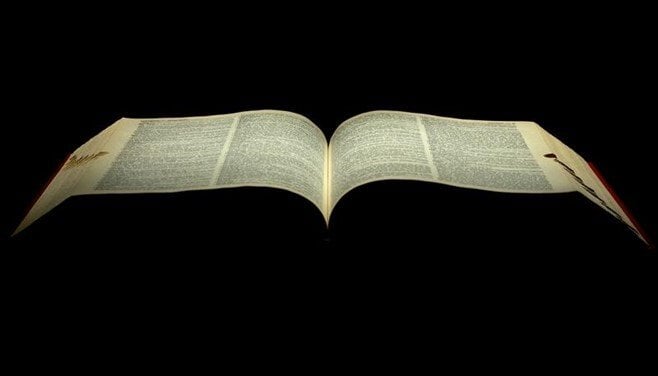Warning! Read This and Your Life Might Never Be the Same!
Daily Reflection / Produced by The High Calling
"And no one puts new wine into old wineskins. For the new wine would burst the wineskins, spilling the wine and ruining the skins. New wine must be stored in new wineskins. But no one who drinks the old wine seems to want the new wine. 'The old is just fine,' they say."
Luke 5:37
The title of today's reflection isn't just a hook to snag your attention. I mean exactly what I say: "Warning! Read This and Your Life Might Never Be the Same!" That's absolutely right. You see, today we encounter a passage of Scripture that has changed my life profoundly. Perhaps more than any other biblical text, save for John 3:16, which helped me become a Christian, Luke 5:37-38 has reshaped my life in profound and unexpected ways. In fact, were it not for this text, I would not be writing this reflection today, or any of the Daily Reflections, for that matter.
Before I explain these bold statements, I want first to focus on the text of Luke. You may recall from yesterday's reflection that Jesus was asked why his disciples did not fast, unlike the disciples of John the Baptist and the Pharisees. Jesus answered by offering three illustrations from ordinary life. First, the wedding guests do not fast while the groom is celebrating with them. Second, nobody patches an old garment with cloth from a new garment. Third, and finally, Jesus uses an illustration dealing with wine and wineskins.
In order to understand Jesus' point, we need to know that, in the first century A.D., wine was often stored in carefully prepared animal skins. These watertight skins not only would hold the liquid without spilling, but also would be able to expand as the grape juice fermented, on its way to becoming wine. That meant, however, that a wineskin could only be used once, since it could be stretched only once before becoming stiff. If one tried to reuse a wineskin, it would burst and the fermenting wine would be lost.
With this in mind, we can understand Jesus' meaning in verses 37-39: "And no one puts new wine into old wineskins. For the new wine would burst the wineskins, spilling the wine and ruining the skins. New wine must be stored in new wineskins. But no one who drinks the old wine seems to want the new wine. 'The old is just fine,' they say." Once more, Jesus is using an illustration from common life. Everybody who heard him would know that new wine needed new skins.
So what is Jesus saying here, besides the literal point about wine and wineskins? He is saying that the new wine he brings, the new wine of the kingdom of God, should not be contained in the old skins of religious tradition. Fasting, the presenting issue here, is not wrong in and of itself. In fact, the time would come when the disciples of Jesus would fast. But it would be wrong to try and force the new wine of Jesus into the old wine of Jewish ritual. Like old wineskins, the old ways of doing religion simply cannot contain the new wine of the kingdom of God.
As long as Jesus is seen as addressing issues of fasting and Jewish ceremony, we can safely read this passage without endangering our status quo. But what if we begin to apply Jesus' image of wine and wineskins to our lives? What if we consider how the truth of this text might speak to us, to our churches, to our assumptions about how we are to live each day? Here's where things can get messy, even dangerous, for those who love the comfort of our familiar lives. For now, I invite you to think of how the illustration of wine and wineskins might speak to you. Tomorrow I'll begin to share how this passage ended up changing my life.
QUESTIONS FOR FURTHER REFLECTION: How do you respond to Jesus' illustration of wine and wineskins? In what ways have you "tasted" the new wine of the kingdom of God? How has the new wine been "contained" in your life? Are there any "old wineskins" in your life into which you are trying to contain the new wine of Christ?
PRAYER: Dear Lord Jesus, first of all I want to thank you for speaking in such down-to-earth ways. Though the illustration of wine and wineskins needs a bit of unpacking for us today, it would have been understandable to just about anybody who heard. you. And with a little background, we can grasp it too.
This is not to say, however, that we can "manage" this text. If we take it seriously, if we let it speak to our lives and challenge us, this simple illustration has untold power.
Dear Lord, may our lives be open to you. May our ears be open to whatever you want to say to us. May our hearts be prepared to welcome you, even when you surprise us. May our lives be new wineskins, ready to receive your new wine. Amen.












